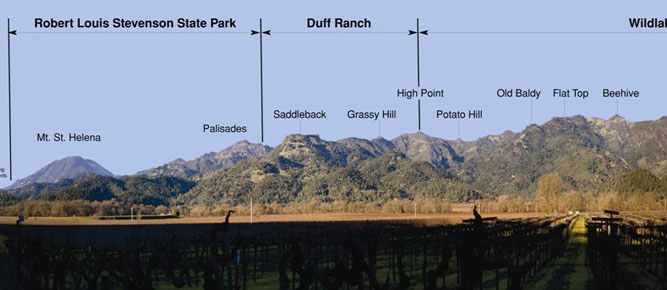FAQ: Voluntary Conservation Agreements
What is a voluntary conservation agreement?
A voluntary conservation agreement (also known as a conservation easement) is a legal agreement that is used by landowners to protect the natural, agricultural and scenic resources of their land. The landowner retains ownership of the land and may continue to use the land for agriculture, recreation or other open space uses. Conservation agreements restrict certain uses such as industrial and commercial activities, but may allow for residential and commercial agricultural uses. Generally, conservation agreements are flexible and tailored to meet the landowner’s individual needs while protecting the unique natural, open space or agricultural characteristics of the property. Conservation agreements are donated to a nonprofit conservation organization, such as the Land Trust of Napa County, which bears the responsibility to inspect the land periodically and enforce the landowner’s restrictions in perpetuity.
Why do most people establish voluntary conservation agreements on their properties?
There is no single reason why people choose to protect their land through a voluntary conservation agreement. Some have worked hard to conserve their land and want to leave farmland, open space or natural areas intact for their children and their community. Some want to make sure that future owners or the land will not undo what they have worked hard to establish. Some are attracted by the potential for income, estate and/or property tax benefits. Whatever the reason, it is essential to plan now to protect your land forever.
I don’t want to give up control of my land, so how do voluntary conservation agreements work?
The Land Trust works with you to establish the terms of the conservation agreement. ;You will continue to own the land, enjoy its use, and have complete control of the land within the limits of the conservation agreement terms. You also will be able to sell the land or to will it to your children. Most land management decisions continue to be yours - such as the decision whether to allow hunting, hiking or grazing.
For example, can I keep the right to have one or more additional home site(s) on my property?
Yes. Although most conservation agreements eliminate home sites, it is not a requirement. Some limited development may also be allowed.
Is a conservation agreement a permanent decision or can I change my agreement restrictions?
A voluntary conservation agreement is for all intents and purposes a permanent decision; neither you nor your heirs can change it unless the conservation agreement holder (e.g. Land Trust of Napa County) agrees. It is unlikely that modifications to the agreement would be allowed unless they would enhance the conservation values of the property.
I’ve been doing just fine protecting my land. Why should I work with the Land Trust on a voluntary conservation agreement?
Working with the Land Trust of Napa County allows you to protect your property beyond your ownership while potentially receiving income and estate tax benefits. With 35 years in land conservation behind us, the Land Trust has developed an efficient program that works to preserve the property’s conservation values, using documentation and an established monitoring regimen to ensure the property’s protection - forever. The Land Trust is an active member of the local, regional and national landsaving communities, building solid partnerships with like-minded organizations. We have a strong membership base contributing to our financial solvency. And, we have successfully worked collaboratively with 80 landowners to protect their properties with voluntary conservation agreements.







